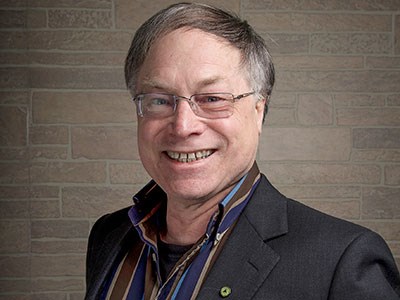If you to get an invitation to visit a foreign country and give policy advice, you are an international expert. I am in fact a certifiable international expert. Unfortunately, according to the dictionary, “certifiable” means “officially recognized as needing treatment for a mental disorder.” Giving advice in a country you barely know is definitely a sign of a mental disorder of some sort.
I am just back from Peru, where I gave talks on carbon pricing, how to take advantage of climate change, saving the Amazon forests and mining innovation. I was flattered to be invited, of course, even though it was hard to see why they would ask for advice from me. It might have been because Canada is making some real progress on carbon pricing, or because Sudbury has been so successful in its regreening and mining supply sector, or because I’ve given a few talks for the Citizens’ Climate Lobby on carbon taxes and border tax adjustments.
In any case, the flattery was enough to get me to spend two days flying or waiting around in airports and three days rushing from meeting to meeting in Lima during the worst heat wave in years. That is probably more evidence of a mental disorder.
People in Peru may not have learned anything useful from me, but I learned how much we have in common, and even managed to learn some things about Northern Ontario.
Peru and Northern Ontario are about the same size and both have huge, thinly populated forest ecosystems. We have nothing like the massive illegal logging in the Peruvian Amazon that threatens the global climate system. We also have nothing like the huge illegal gold-mining industry that’s ripping apart rivers and valleys the way they once did in the Yukon’s Dawson City. Nor are our mining companies leaking large amounts of mercury and cyanide into our rivers anymore. Even so, I found that in many ways Northern Ontario is more like underdeveloped Peru than it is like overdeveloped southern Ontario.
Peru is facing climate change just as we are, although Peru’s problems are a bit more dramatic than ours. In Peru, communities in the coastal desert depend on Andean glaciers that will be gone in less than 40 years. In Canada, only Alberta is a quasi-desert that depends on the rapidly disappearing Rocky Mountain glaciers for summer irrigation. The United Nations reports that the loss of Peru’s glaciers threatens the livelihoods of two million people in the mountain valleys and coastal cities. Peru's capital, Lima, gets almost no rain, and its population of 10 million people relies on glacial melt for their water. Already drought threatens Peruvian agriculture and its hydroelectricity generation. At the same time, increasingly intense rains cause floods, as they do here, but also mudslides and avalanches.
Like Canada, Peru has become a leader in fighting climate change, and just as in Canada, there is fierce resistance to action. As in Canada, the government has sometimes tried to silence scientists who talk about climate change, and at one point there was a secret ban on talking about carbon taxes. Canada is ahead of Peru in carbon pricing.
I was surprised to find that the academics and employees of the Ministry of the Environment didn’t seem to know about the fee and dividend approach to carbon pricing, nor about the need for border tax adjustments to protect domestic industries with a carbon tax.
A surprising number of Peruvians have personal connections to Canada. Xavier Gordillo Carrillo, for example, the managing director of the Research and Environmental Information Department of the Ministry of the Environment, was educated at Carlton. A cab driver had worked on cruise ships of B.C.’s Pacific Coast University and the University of Ottawa. The soil scientist I sat with at lunch wanted me to thank Canadians for the scholarship that let him study soil science in the U.S. Someone else has a daughter in Vancouver.
Peruvians are a lot like Canadians in another way, I found: they would rather listen to outside experts than their own specialists. That is how I got to be an “international expert”. Will Queen’s Park listen to me now?



